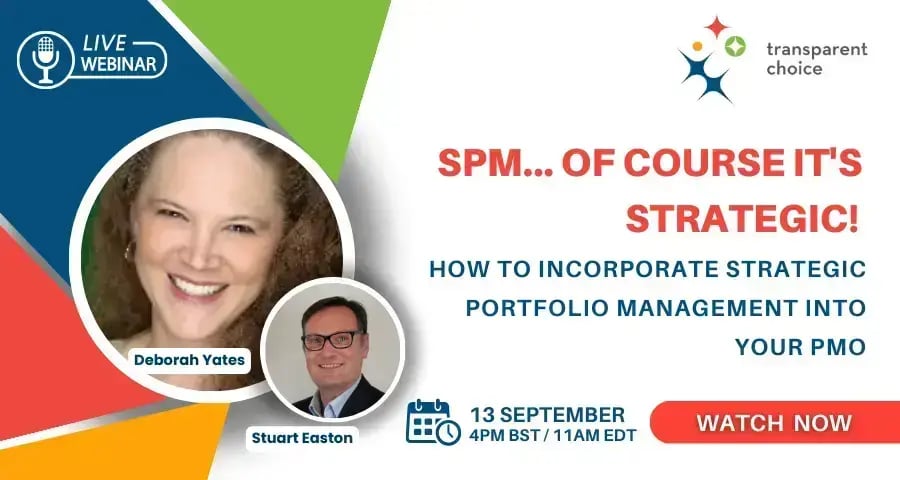How to Incorporate Strategic Portfolio Management into the PMO

Speakers

Deborah Yates is an experienced leader in portfolio and transformation, bringing expertise in program management, governance, and organizational change. She focuses on helping organizations deliver greater value through effective prioritization and impactful PMOs.

Stuart helps PMO and portfolio leaders build strategy-aligned portfolios and prove ROI. A guest lecturer on project prioritization at the University of Oxford, he speaks widely on killing pet projects, focusing investment on value, and using decision science (AHP) to make clear, defensible choices.
About this webinar
In this webinar, Deborah Yates and Stuart Easton take a deep dive into how Strategic Portfolio Management (SPM) can transform the PMO into a driver of enterprise value. They examine the history and evolution of PMOs, why so many fail to deliver impact, and how adopting a strategic lens changes everything.
You’ll gain insights into:
- The evolution of the PMO: From execution and control to enabling strategy and value delivery.
- What SPM really means: Sitting at the intersection of strategy and execution, ensuring initiatives align with business goals.
- Critical enablers: Governance frameworks, culture, and leadership buy-in as the foundation for success.
- Continuous planning: Moving away from annual cycles to adaptive, rolling prioritization that reflects changing realities.
- Outcome focus: Shifting from tracking deliverables and costs to measuring strategic impact, benefits realization, and value creation.
- Practical tools: Portfolio roadmaps, capability assessments, financial insights, and governance reporting tailored for executives.
Through examples and lessons learned, Deborah shows how to avoid common pitfalls—like “everything being labeled strategic” or PMOs drowning in templates—and instead build a streamlined, value-focused function. This conversation offers both inspiration and practical advice for PMO leaders looking to modernize their approach and position their teams as indispensable strategic partners.